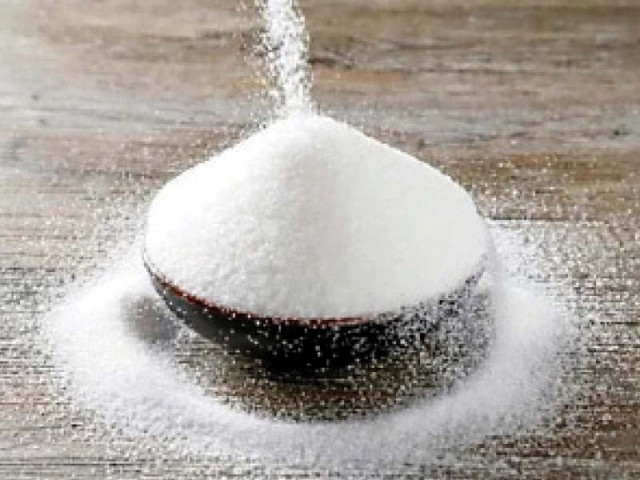Govt gives nod for sugar export
At least 100,000 tons may be exported that will fetch $53 million

The government on Monday decided, in principle, to allow export of about 100,000-150,000 tons of sugar while accepting a major demand of millers and coalition partners, a move that may ensure the running of mills, but may also cause price escalation.
The decision was made during a meeting held at the Ministry of Finance, which was also attended by the officials of the Ministry of National Food Security and Research.
In light of the present position of stocks and the start of sugarcane crushing season, the government would allow the export of at least 100,000 tons of sugar, said sources. There was also a suggestion that export of 150,000 tons could be allowed, according to an official of the Ministry of National Food Security.
Final decision on sugar export and the quantity would be taken in a meeting of the Economic Coordination Committee (ECC) of the cabinet, said the sources.
By exporting 100,000 tons, the sugar millers can earn at least $53 million, or nearly Rs12 billion.
The decision marks a departure from the stance taken a week earlier when the government turned down the demand of sugar millers for the export of 1 million tons on the ground that surplus stocks were not independently “verifiable”.
Last week, Minister for National Food Security and Research Tariq Bashir Cheema contested the claim that about 1.065 million tons of sugar was available in the country. He added that until the stocks were verified independently, the government would not grant the permission for export.
Sources said that the food security minister and the ministry on Monday finally backed the proposal for export of sugar. Cheema was not available for comments.
There were concerns that the export may result in an increase in prices of sugar in the country. It was discussed in the meeting that as a result of recent decisions, sugar prices could increase to Rs110 per kg.
One participant suggested that the permission for export should be reversed, if prices rose above Rs110 per kg.
Sugar prices remained at Rs100 per kg last week, according to the Pakistan Bureau of Statistics (PBS).
Prices are bound to increase after the Punjab government fixed the sugarcane price at Rs300 per 40 kg, with a surge of 33%. Sugar millers question that after the 33% increase in input cost, how prices can remain unchanged.
They claim that at Rs300 per 40 kg of sugarcane, the cost of sugar production will come to Rs105 per kg for the efficient mills and Rs115 per kg for the less efficient mills in the northern region.
Meanwhile, Pakistan Sugar Mills Association (PSMA) has threatened that they will not start the new sugarcane crushing season until the export of 1 million tons is allowed.
Sources said that the government was concerned that if sugar export was allowed, then prices would rise in the domestic market, which it could not afford at a time of growing political uncertainty.
Average sugar consumption in Pakistan is estimated at 596,000 tons per month and the stocks as of November 15 were sufficient for only 54 days.
Government’s assessment last week suggested that due to the widespread damage to the sugarcane crop, sugar production would be 260,000 tons less than the annual consumption requirement next year.
However, the millers disagreed, arguing that they would still have a surplus of 750,000 tons.
Owing to the delay in starting the crushing season, farmers have not been able to plant wheat that may pose food security challenges next year.
Some of the sugar mills were still reluctant to start crushing due to the anticipated losses after the increase in sugarcane prices.
An official statement issued by the Ministry of Finance stated that a meeting, headed by Finance Minister Ishaq Dar, reviewed the available stock position and future demand for sugar in the country.
It was apprised that sufficient stocks of sugar were available, according to the ministry.
It was also informed that sugar mills had started sugarcane crushing in Sindh and Punjab and the production of sugar in Sindh would be less than last year due to floods, according to sources in the ministry.
Ishaq Dar expressed satisfaction over the availability and production of sugar and stressed the need for maintaining the strategic reserves of sugar and keeping its prices unchanged for providing maximum relief to the consumers, they added.
Published in The Express Tribune, November 29th, 2022.
Like Business on Facebook, follow @TribuneBiz on Twitter to stay informed and join in the conversation.



















COMMENTS
Comments are moderated and generally will be posted if they are on-topic and not abusive.
For more information, please see our Comments FAQ